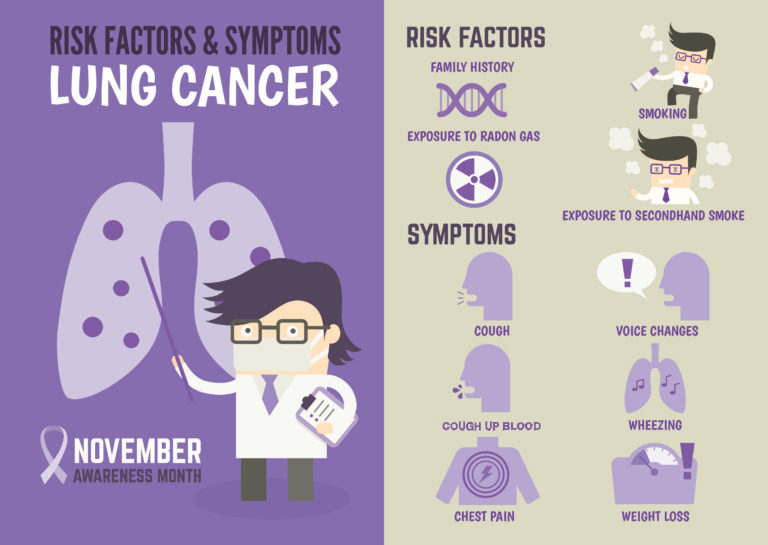 By David D. Shersher, MD
By David D. Shersher, MD
Thoracic Surgeon, Lung Cancer Center, MD Anderson Cancer Center at Cooper
According to the American Cancer Society, lung cancer is the second most common cancer in both men and women (other than skin cancer). Lung cancer accounts for about 27 percent of all cancer deaths – each year, more people die of lung cancer than of colon, breast, and prostate cancers combined. About 221,200 new cases of lung cancer will be diagnosed and approximately 158,040 people will die from lung cancer in the United States this year.
Although anyone can get lung cancer, the biggest risk factor is smoking. About 80 percent of lung cancer deaths are thought to result from smoking. The risk for lung cancer among smokers is many times higher than among non-smokers. The longer you smoke, and the more packs a day you smoke, the greater your risk. You can reduce your lung cancer risk by not smoking or by quitting.
Other risk factors include:
- Exposure to secondhand smoke – can increase the risk of developing lung cancer by almost 30 percent, and is thought to cause more than 7,000 deaths from lung cancer each year.
- Age – approximately two out of three people diagnosed with lung cancer are 65 or older. Fewer than 2 percent of all cases of lung cancer are found in people younger than 45.
- Gender – the chances of a man developing lung cancer in his lifetime is about one in 13; for a woman, the risk is about one in 16. These numbers include both smokers and non-smokers, but the risk for smokers is much higher.
- Race – black men are about 20 percent more likely to develop lung cancer than white men, while the rate is about 10 percent lower in black women than in white women. Both black women and white women have lower rates of lung cancer than men.
- Exposure to asbestos.
- Exposure to radon – a naturally occurring radioactive gas that results from the breakdown of uranium in soil and rocks.
- Family history.
Rates of survival in people with lung cancer vary depending on the stage of the cancer when it is diagnosed.
Often, lung cancer does not cause any symptoms until it is at an advanced stage, but symptoms do occur in some people with early stage lung cancer.
Symptoms of lung cancer can include:
- A cough that does not go away or gets worse.
- Chest pain that is often worse with deep breathing, coughing, or laughing.
- Hoarseness.
- Weight loss and loss of appetite.
- Coughing up blood or rust-colored sputum (spit or phlegm).
- Shortness of breath.
- Feeling tired or weak.
- Infections such as bronchitis and pneumonia that don’t go away or keep coming back.
- New onset of wheezing.
Many of the symptoms listed above can be caused by conditions other than lung cancer. However, if you are experiencing any of these symptoms, it’s important to see your doctor right away.
Talk with your physician to see if you could benefit from our Lung Cancer Screening Program. Learn more about the screening here, or call our Lung Cancer Screening Program Coordinator at 856.735.6235.
Read more about Dr. Shersher here.
